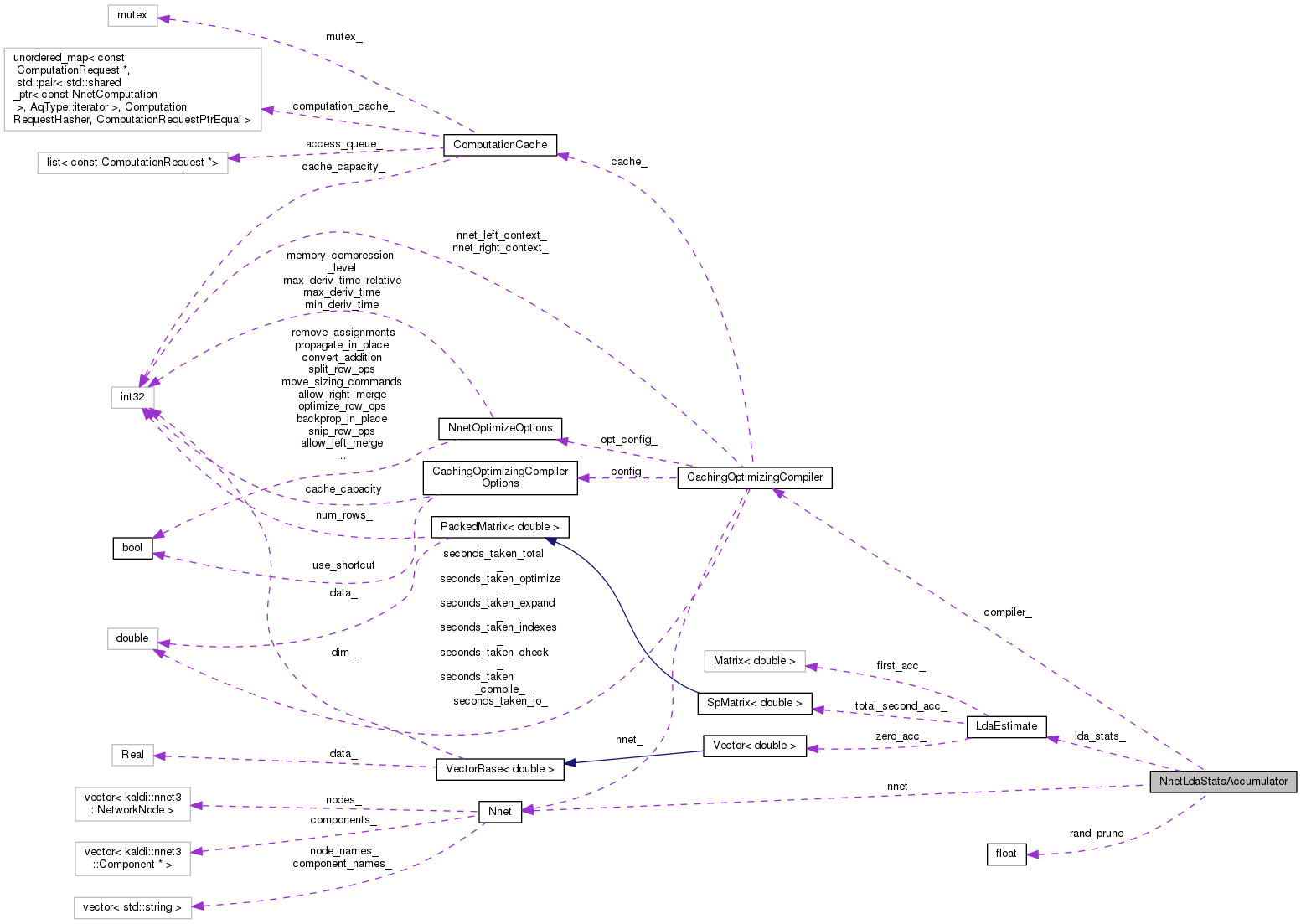
Public Member Functions | |
| NnetLdaStatsAccumulator (BaseFloat rand_prune, const Nnet &nnet) | |
| void | AccStats (const NnetExample &eg) |
| void | WriteStats (const std::string &stats_wxfilename, bool binary) |
Private Member Functions | |
| void | AccStatsFromOutput (const NnetExample &eg, const CuMatrixBase< BaseFloat > &nnet_output) |
Private Attributes | |
| BaseFloat | rand_prune_ |
| const Nnet & | nnet_ |
| CachingOptimizingCompiler | compiler_ |
| LdaEstimate | lda_stats_ |
Definition at line 32 of file nnet3-acc-lda-stats.cc.
|
inline |
Definition at line 34 of file nnet3-acc-lda-stats.cc.
|
inline |
Definition at line 38 of file nnet3-acc-lda-stats.cc.
References NnetComputer::AcceptInputs(), NnetLdaStatsAccumulator::AccStatsFromOutput(), CachingOptimizingCompiler::Compile(), NnetLdaStatsAccumulator::compiler_, NnetComputeOptions::debug, kaldi::nnet3::GetComputationRequest(), kaldi::GetVerboseLevel(), NnetExample::io, and NnetLdaStatsAccumulator::nnet_.
Referenced by main().
|
inlineprivate |
Definition at line 65 of file nnet3-acc-lda-stats.cc.
References LdaEstimate::Accumulate(), SparseVector< Real >::Data(), VectorBase< Real >::Dim(), LdaEstimate::Dim(), NnetIo::features, GeneralMatrix::GetMatrix(), GeneralMatrix::GetSparseMatrix(), rnnlm::i, LdaEstimate::Init(), NnetExample::io, KALDI_ASSERT, kaldi::kSparseMatrix, NnetLdaStatsAccumulator::lda_stats_, CuMatrixBase< Real >::NumCols(), GeneralMatrix::NumCols(), SparseVector< Real >::NumElements(), CuMatrixBase< Real >::NumRows(), GeneralMatrix::NumRows(), NnetLdaStatsAccumulator::rand_prune_, kaldi::RandPrune(), SparseMatrix< Real >::Row(), and GeneralMatrix::Type().
Referenced by NnetLdaStatsAccumulator::AccStats().
|
inline |
Definition at line 54 of file nnet3-acc-lda-stats.cc.
References KALDI_ERR, KALDI_LOG, NnetLdaStatsAccumulator::lda_stats_, LdaEstimate::TotCount(), and kaldi::WriteKaldiObject().
Referenced by main().
|
private |
Definition at line 127 of file nnet3-acc-lda-stats.cc.
Referenced by NnetLdaStatsAccumulator::AccStats().
|
private |
Definition at line 128 of file nnet3-acc-lda-stats.cc.
Referenced by NnetLdaStatsAccumulator::AccStatsFromOutput(), and NnetLdaStatsAccumulator::WriteStats().
|
private |
Definition at line 126 of file nnet3-acc-lda-stats.cc.
Referenced by NnetLdaStatsAccumulator::AccStats().
|
private |
Definition at line 125 of file nnet3-acc-lda-stats.cc.
Referenced by NnetLdaStatsAccumulator::AccStatsFromOutput().